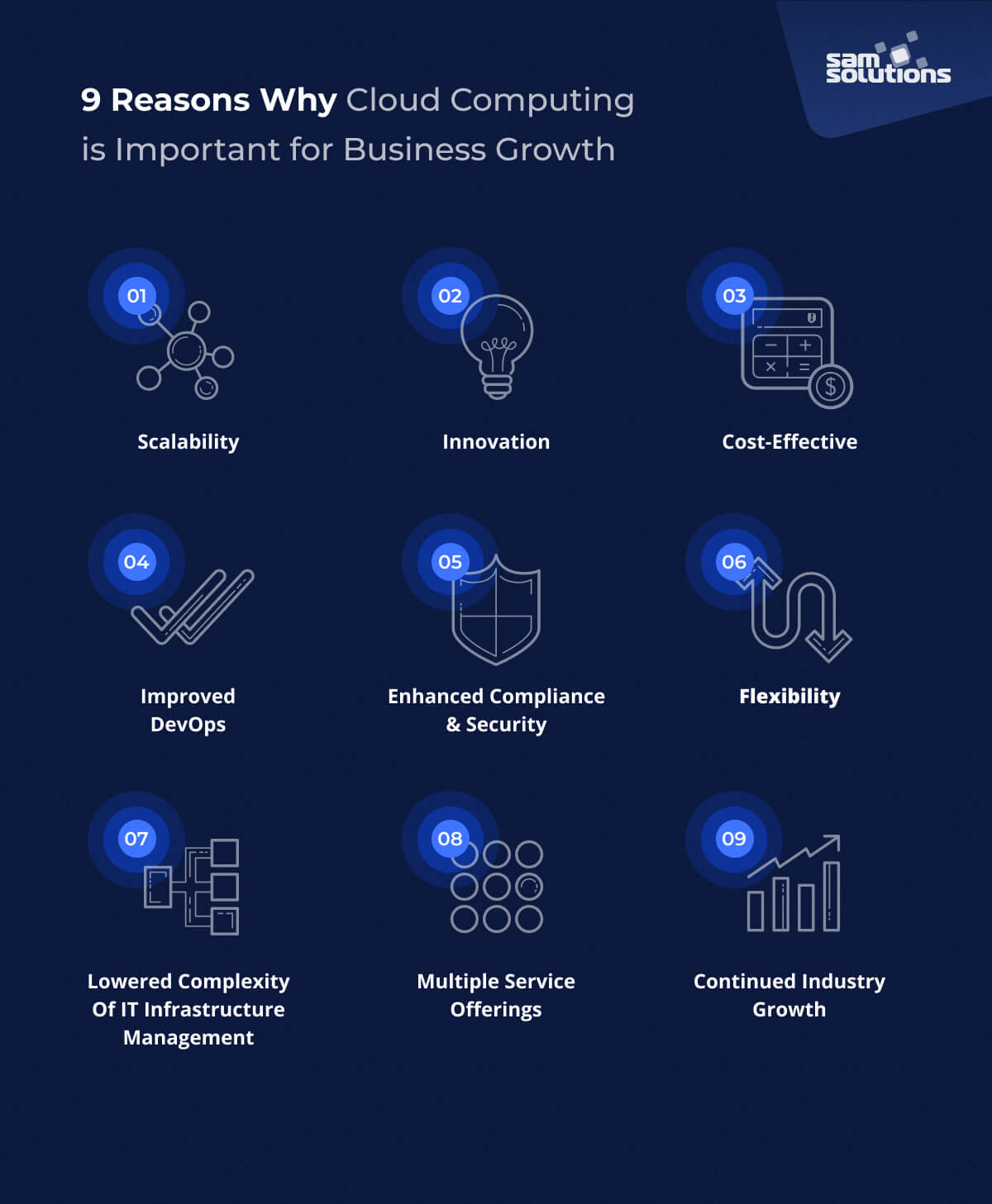Scalable cloud services help small businesses grow without heavy investments. They offer flexibility and cost-efficiency.
Small businesses often face challenges in managing IT resources. Cloud services provide a solution by offering scalable options. These services allow businesses to pay only for what they use. This reduces costs and eliminates the need for large upfront investments.
Cloud platforms also offer enhanced security and data backup. This ensures business continuity even during unforeseen events. With cloud services, small businesses can focus on growth. They do not need to worry about technical limitations. Access to the latest technology becomes easier and more affordable. Cloud services are essential for small businesses aiming for long-term success.
Introduction To Scalable Cloud Services
Scalable cloud services provide flexible solutions for small businesses. They offer the ability to grow and adapt quickly. These services are crucial for today’s fast-paced market. By using scalable cloud services, businesses can manage costs effectively.
Importance For Small Businesses
Small businesses need to stay competitive. Scalable cloud services help them achieve this. They allow for easy expansion and contraction of resources. This flexibility is vital for adapting to changing needs.
Additionally, these services reduce the need for large upfront investments. Small businesses can start with minimal resources. They can then scale up as demand grows. This pay-as-you-go model is financially beneficial.
Moreover, scalable cloud services enhance operational efficiency. They automate many tasks, freeing up time for core activities. This improves productivity and supports business growth.
Key Features
- Flexibility: Easily adjust resources based on demand.
- Cost Efficiency: Pay only for what you use.
- Automation: Automate routine tasks to save time.
- Security: Enhanced security features to protect data.
- Accessibility: Access data from anywhere, anytime.
These features make scalable cloud services a smart choice. They support growth and efficiency. They also offer robust security and accessibility.
In summary, scalable cloud services are essential. They provide the tools small businesses need to thrive.

Credit: www.esds.co.in
Cost Efficiency
Scalable cloud services offer incredible cost efficiency for small businesses. They help minimize expenses and maximize resources. Let’s explore how these services can save money.
Pay-as-you-go Model
The pay-as-you-go model is a game-changer for small businesses. You only pay for what you use. This means no wasted resources. If your usage decreases, your costs decrease too. This helps businesses manage their budgets better. You can start small and scale up as needed. This flexibility is perfect for growing businesses.
Reduced It Expenses
Using cloud services reduces IT expenses. You don’t need to invest in expensive hardware. Maintenance and upgrades are handled by the service provider. This saves both time and money. Your IT team can focus on strategic tasks rather than maintenance. This improves productivity and efficiency.
| Expense Type | Traditional IT | Cloud Services |
|---|---|---|
| Hardware | High | Low |
| Maintenance | High | Low |
| Scalability | Limited | Unlimited |
- No need for physical servers.
- Automatic software updates.
- Lower energy consumption.
Small businesses can now compete with larger enterprises. Cloud services make it possible. They provide the same powerful tools and resources. All at a fraction of the cost.
Enhanced Flexibility
Scalable cloud services provide enhanced flexibility for small businesses. They help companies adapt quickly to changing demands. Cloud services can grow with your business needs. This flexibility is crucial for small businesses looking to compete.
Adapting To Business Needs
Cloud services allow businesses to adapt to their needs. You can easily scale up or down based on demand. No need for expensive hardware upgrades. This adaptability ensures your business stays agile. It also helps manage costs effectively.
- Scale resources up or down
- Manage costs efficiently
- Stay agile and competitive
Remote Work Facilitation
Cloud services are vital for remote work facilitation. Employees can access files from anywhere. This accessibility boosts productivity and collaboration. It also supports a healthy work-life balance.
| Feature | Benefit |
|---|---|
| Remote access to files | Boosts productivity |
| Collaboration tools | Enhances teamwork |
| Flexible work hours | Supports work-life balance |
Improved Collaboration
Scalable cloud services enhance collaboration for small businesses. Teams can work together effortlessly. Improved collaboration means better productivity and seamless operations. Let’s explore how cloud services achieve this through real-time data access and team communication tools.
Real-time Data Access
Real-time data access allows team members to view and update information instantly. This ensures everyone has the latest data. It eliminates delays caused by outdated information. Cloud services enable remote work by providing access from anywhere. Employees can collaborate from different locations without missing a beat.
- Instant updates
- Remote access
- Eliminates data delays
Imagine a project where all team members see changes immediately. They can adjust their tasks accordingly. This leads to faster decision-making and increased efficiency. Real-time data access is a game-changer for small businesses aiming to stay competitive.
Team Communication Tools
Cloud services come with team communication tools. These tools streamline interactions among team members. They include chat apps, video conferencing, and collaborative platforms. These tools keep everyone connected and informed.
- Chat applications
- Video conferencing
- Collaborative platforms
Effective communication reduces misunderstandings. It ensures that everyone is on the same page. For small businesses, this means smoother operations and better project outcomes. Team communication tools are essential for enhanced collaboration.
In summary, scalable cloud services offer significant benefits for small businesses. Improved collaboration through real-time data access and team communication tools leads to greater productivity and efficiency.
Data Security
Data security is crucial for small businesses using scalable cloud services. Protecting sensitive information is a top priority. Proper data security measures can prevent breaches and data loss.
Encryption Protocols
Encryption protocols are vital for data security. They convert data into unreadable codes. Only authorized parties can decode these codes. This ensures data is safe during transmission.
Popular Encryption Protocols:
- AES (Advanced Encryption Standard)
- RSA (Rivest-Shamir-Adleman)
- SSL/TLS (Secure Sockets Layer/Transport Layer Security)
Implementing these protocols can safeguard your business data. They protect data from hackers and unauthorized access.
Regular Backups
Regular backups are essential for data protection. They help restore data in case of loss or corruption. Backups ensure business continuity after unexpected events.
Benefits of Regular Backups:
- Data recovery after hardware failure
- Protection against ransomware
- Preservation of historical data
Schedule backups at regular intervals. Use automated tools to simplify the process. Store backups in a secure location.

Credit: arksolvers.com
Scalability Benefits
Small businesses often face challenges as they grow. One critical aspect is scalability. Scalable cloud services offer numerous benefits to support business growth and resource management.
Handling Business Growth
As businesses grow, their needs change. Scalable cloud services allow small businesses to adjust resources quickly. They can increase their storage, processing power, and bandwidth as needed. This flexibility helps businesses avoid over-committing resources early on. They can pay for what they need at each stage of growth.
Scalable services also support sudden spikes in demand. For example, during a sales event, a business can handle increased traffic without crashing. This capability helps maintain a smooth customer experience and avoids lost sales.
Resource Allocation
Efficient resource allocation is crucial for small businesses. Scalable cloud services provide tools for better resource management. Businesses can allocate resources to specific departments or projects. This helps in tracking and optimizing resource usage.
Here is a table to illustrate the benefits:
| Aspect | Traditional Servers | Scalable Cloud Services |
|---|---|---|
| Cost | High fixed costs | Pay-as-you-go |
| Flexibility | Limited | High |
| Maintenance | On-premises | Managed by provider |
Scalable cloud services also enhance efficiency by automating resource adjustments. Businesses no longer need to manually adjust servers or storage. Automation ensures resources are available when needed, saving time and reducing errors.
Popular Cloud Service Providers
Choosing the right cloud service provider is crucial for small businesses. It ensures scalability, reliability, and cost-efficiency. Below are some popular cloud service providers that small businesses can consider.
Amazon Web Services
Amazon Web Services (AWS) offers a wide range of services. It includes computing power, storage, and databases. AWS is known for its scalability and reliability. Small businesses benefit from its pay-as-you-go pricing model.
Key features of AWS include:
- EC2 for scalable computing power
- S3 for storage solutions
- RDS for managed databases
- Lambda for serverless computing
Amazon’s extensive global network ensures high availability and low latency.
Microsoft Azure
Microsoft Azure is another top choice for small businesses. Azure provides a variety of integrated cloud services. These include analytics, computing, database, mobile, networking, storage, and web. It supports a wide range of operating systems, databases, and devices.
Key features of Microsoft Azure include:
- Virtual Machines for scalable computing
- Blob Storage for reliable storage
- Azure SQL Database for managed SQL databases
- Azure Functions for serverless computing
Azure’s seamless integration with Microsoft products makes it a preferred choice.
Google Cloud Platform
Google Cloud Platform (GCP) offers robust cloud solutions. It includes computing, storage, and machine learning. GCP is known for its data analytics and machine learning capabilities. Small businesses can leverage Google’s expertise in big data.
Key features of GCP include:
- Compute Engine for virtual machines
- Cloud Storage for scalable storage solutions
- BigQuery for data analytics
- Cloud Functions for serverless computing
Google’s global network ensures high performance and reliable services.

Credit: sam-solutions.us
Implementation Tips
Scalable cloud services are crucial for small businesses seeking growth. Implementing these services can seem daunting, but with the right tips, the process becomes manageable. Below are some essential implementation tips to help you get started.
Choosing The Right Provider
Selecting the right cloud service provider is key. Consider these factors:
- Reliability: Ensure the provider has a strong uptime record.
- Scalability: The service should grow with your business needs.
- Security: Data protection should be a top priority.
- Support: Look for providers offering 24/7 customer support.
- Cost: Compare pricing plans to find one that fits your budget.
Migration Strategies
Moving to the cloud requires careful planning. Follow these strategies for a smooth migration:
- Assess Your Current Infrastructure: Understand what needs to be moved.
- Create a Migration Plan: Outline steps and timelines for the move.
- Back Up Data: Ensure all data is backed up before migration.
- Test the Environment: Conduct tests to verify the new setup.
- Train Staff: Ensure your team is familiar with the new system.
Implementing scalable cloud services doesn’t have to be overwhelming. With the right provider and a solid migration strategy, small businesses can enjoy the benefits of the cloud efficiently.
Future Trends
Small businesses are embracing scalable cloud services. They seek flexibility and growth. The future of these services looks promising. Several trends will shape the future of cloud services.
Ai Integration
Artificial Intelligence (AI) will transform cloud services. Small businesses will benefit from AI-powered analytics. This will help in making data-driven decisions. AI will automate routine tasks, saving time and resources.
Here are some benefits of AI in cloud services:
- Enhanced Security: AI can detect threats faster.
- Improved Efficiency: AI automates repetitive tasks.
- Better Customer Insights: AI analyzes customer behavior.
- Cost Savings: AI optimizes resource usage.
Iot And Cloud Services
The Internet of Things (IoT) will integrate with cloud services. This combination will bring new opportunities. Small businesses can connect devices to the cloud. They can gather real-time data from these devices. This data will improve operations and customer service.
Benefits of IoT with cloud services include:
- Real-Time Monitoring: Track and manage assets remotely.
- Data Storage: Store vast amounts of IoT data in the cloud.
- Scalability: Easily scale IoT deployments with cloud resources.
- Cost Efficiency: Reduce costs by using cloud infrastructure.
Small businesses should watch these trends. Embracing AI and IoT will drive growth. Cloud services will continue to evolve and offer new benefits.
Frequently Asked Questions
What Are Scalable Cloud Services?
Scalable cloud services allow businesses to adjust their resources based on demand. This flexibility ensures cost efficiency and optimal performance. Small businesses can start small and grow as needed.
How Do Scalable Cloud Services Benefit Small Businesses?
Scalable cloud services offer cost savings, flexibility, and efficiency. They enable small businesses to scale up or down without significant investment. This helps in managing resources and costs effectively.
Can Small Businesses Afford Scalable Cloud Services?
Yes, scalable cloud services are cost-effective. They offer pay-as-you-go models, ensuring small businesses only pay for what they use. This makes them affordable and budget-friendly.
What Features Should Small Businesses Look For In Cloud Services?
Small businesses should look for scalability, security, reliability, and support. These features ensure the cloud service meets their needs and grows with their business. A user-friendly interface is also important.
Conclusion
Scalable cloud services can boost your small business growth significantly. They offer flexibility, cost efficiency, and security. With cloud services, you can easily adapt to changing needs. Embrace these solutions to stay competitive and grow. Start leveraging cloud technology today for better business outcomes.





